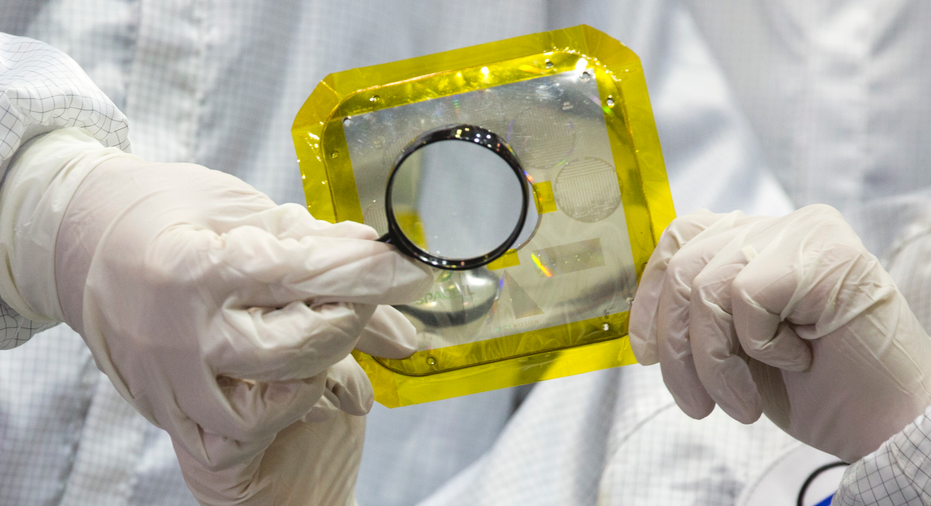First private Israeli lunar mission will launch in February
The SpaceIL lunar module, an unmanned spacecraft, is on display in a special "clean room" where the space craft is being developed, during a press tour of their facility near Tel Aviv, Israel, Monday, Dec. 17, 2018. SpaceIL and the state-owned Israel Aerospace Industries plan to launch their unmanned spacecraft to the moon early in 2019. (AP Photo/Ariel Schalit)
YEHUD, Israel – An Israeli nonprofit on Monday said it has pushed back the launch of what it hopes will be the first private spacecraft to land on the moon until February.
Officials from SpaceIL and its project partner, the state-owned Israel Aerospace Industries, announced that the landing craft, dubbed "Beresheet," or Genesis, will ship in February to Florida. Propelled by a SpaceX Falcon rocket launch, the robotic lander will then commence its months-long voyage to the moon. It had been slated to launch this month.
SpaceIL said it had no control over the launch's delay, and that SpaceX, the private space exploration company founded by entrepreneur Elon Musk, notified them that its rocket will now lift off in February 2019 without providing an explanation.
Israel Aerospace Industries manager Opher Doron stressed that the small craft, roughly the size of a washing machine, faces a "difficult, arduous journey" because it will have to make several orbits before touching down on the moon. Upon landing, the craft is to relay photographs and collect data about the moon's ever-changing magnetism for research by Israel's Weizmann Institute and NASA.
On Monday, SpaceIL representatives presented a time capsule that will accompany the spacecraft to the moon.
The capsule, in the shape of a DVD, holds pictures of the Israeli public, interpretive drawings by Israeli children and other pieces of national memorabilia, including stories of Holocaust survivors.
"We hope that far in the future, when travel to the moon is as common as trans-Atlantic travel, that children will be able to understand the lives of their Israeli ancestors through this archive on the moon," said SpaceIL co-founder Yonatan Winetraub.
A crowd of Israeli reporters, clad in sanitized white coats, burst into applause as Winetraub fastened the capsule to the underbelly of the craft.
SpaceIL was founded in 2011 and originally vied for Google's Lunar Xprize, which challenged private companies to try to land an unmanned spacecraft on the moon.
But the $20 million competition was scrapped by the tech giant earlier this year when it became clear none of the five companies would meet a March deadline.
SpaceIL has vowed to continue the mission and hopes that its ambitious $95 million project, largely funded by South African-Israeli billionaire Morris Kahn and other donors, will spur a new wave of commercial missions to the moon and jump-start new companies.
Israel would become the fourth country to land a craft on the moon, after the U.S., the Soviet Union and China.





















